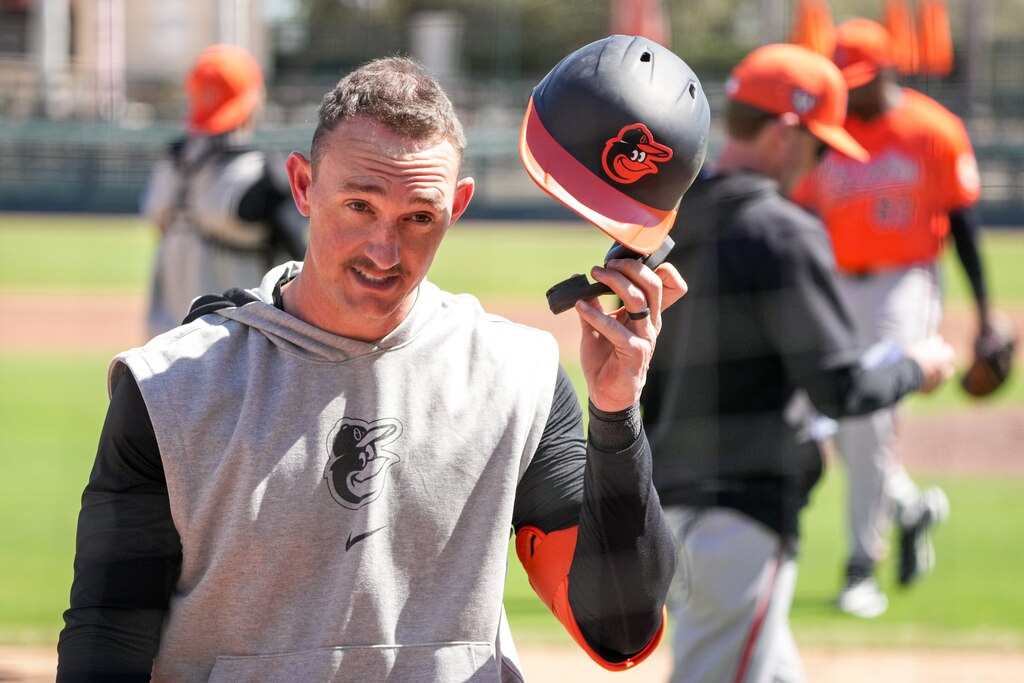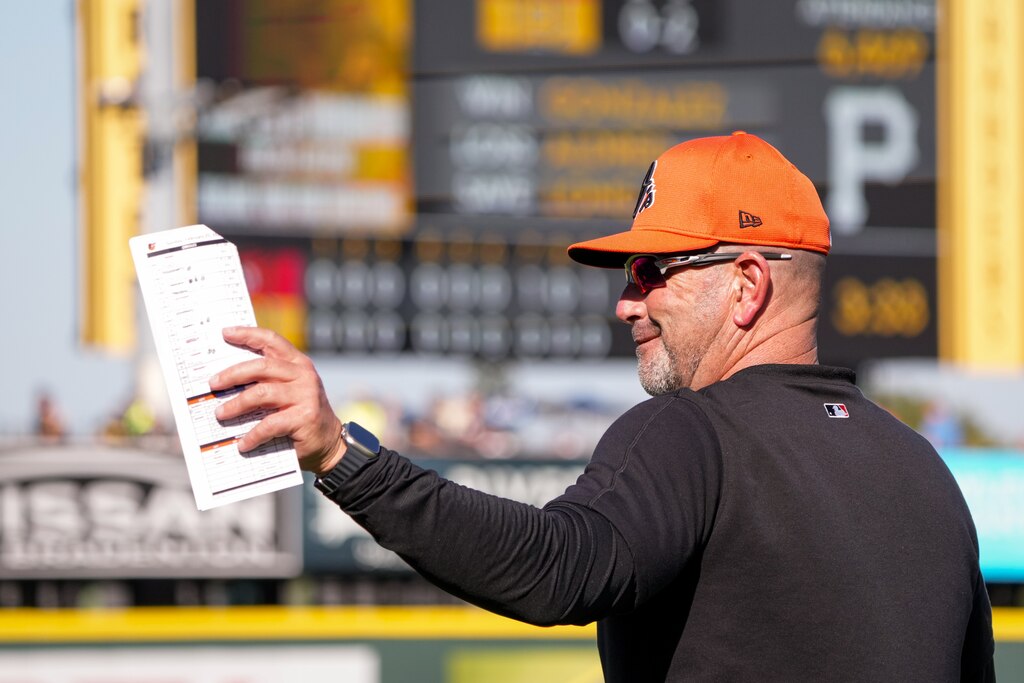Organic growth is the most attractive type in the financial world, where new Orioles owner David Rubenstein made his fortune — the kind where a clear plan and strategy allow a company to live within its means and grow at a sustainable rate.
In many ways, that’s what he acquired in his newest asset. The Orioles have proved general manager Mike Elias’ data-driven strategy to unlock value and develop homegrown talent could work, as evidenced by a 101-win season and a division title after years in the baseball wilderness.
We all know how arduous the journey from bad team to good team was for these Orioles. The progression from good to great is going to be just as challenging, and now must come under new ownership that may certainly appreciate how the Orioles got to this point but has none of the sweat equity, personal history or scars of those who made their turnaround possible.
The Orioles have proven much over the last two years, returning to winning baseball under Brandon Hyde in 2022 and the playoffs in 2023. They did it, mostly for better and sometimes for worse, their way. Rubenstein takes over with the roster, payroll and season plan in place for 2024, a year when anything short of a return to the playoffs would be disappointing and a deep October run is expected.
The Baltimore Banner thanks its sponsors. Become one.
With such higher stakes, considering all that’s changed in Baltimore since this team last took the field, they’ll have to prove it all over again. Winning is an expectation that they’ll have to meet to keep this going on its current trajectory.

So much good work by so many bright, progressive people created this circumstance the Orioles are in, and by extension created these expectations. In an interview with The Banner’s Andy Kostka, Rubenstein pledged he wants to “help the team with its onward ascent,” and credited Elias and the previous partnership group for getting the team where it is today. If he doesn’t do “a good job in supporting those who built the team to where it is today,” Rubenstein said, the blame for not meeting expectations will fall on him.
Supporting Elias, at least in the near term, will have a narrow scope. There’s little in terms of spending to be done now that the season has begun and the marquee free agents are signed. He can green-light adding salary at the trade deadline, but he is mostly going to get an opportunity to learn about how Elias and his team operate, what they believe in and value, and get a firsthand look at a baseball executive he views as one of the best in the game.
He has plenty of reasons to believe that. Elias took over an organization that, through fractured leadership and an emphasis on major league payroll, was behind in many areas in the winter of 2018 when he arrived.
On his watch, the organization upgraded its scouting and player development apparatuses, rejoined the international amateur free agent market, found value in discarded players from all over the game, and built a long-term contender — all while maintaining a bottom-of-the-league payroll.
The Baltimore Banner thanks its sponsors. Become one.
It wasn’t always easy. Elias’ first few seasons featured significant staff turnover as many long-tenured employees and players were let go or otherwise moved on, and the major league team lost two-thirds of its games from 2019 to 2021 with little hope in sight. Fortunes turned in 2022 with the arrival of Elias’ first two draft picks, Adley Rutschman and Gunnar Henderson, and have ascended since.
Rubenstein purchased the team for a variety of reasons, from civic to conventional sporting ones. There’s a belief in the Orioles clubhouse, at least, that the work they did on the field over the last few years played a part in the franchise being so attractive for a purchaser like Rubenstein.
“Part of me thinks that he’s a really big fan of the state of the organization right now and where everything is,” outfielder Austin Hays, one of the team’s longest-tenured players, said. “I don’t want to say we’ve already proven ourselves, but I want to say the state of the locker room right now, and the guys that are in this room, I think he is a fan of what we have here right now, because he did want to buy the team at this point in time, in such a successful state. I’m not saying we don’t have to prove ourselves, but I think he’s coming in with a good image of the guys that are here.”
That attitude is part of what’s charming about these Orioles, even as they come into the season no longer the upstarts or underdogs they were a season ago. There is pride in where they came from and what they’ve built, from the tenured players who provided hope during the lean years to the wave of young stars who pushed things to the next level.
Same goes for the front office, where John Angelos’ intermittent focus on other areas of the organization allowed them to build a contender in a frictionless environment, exactly as they saw fit. And build a contender they did.
The Baltimore Banner thanks its sponsors. Become one.
Now, Rubenstein will be the person who decides how that contender goes forward. If the Orioles’ season goes as planned, it’s easy to envision him fully backing Elias and Hyde for this next phase, and perhaps using either his own personal funds or the funds he and his team can assuredly generate from improving the team’s business and commercial operations, to increase payroll and other resources.

Winning isn’t the only defense against change, but it’s certainly the best one. The landscape is littered with examples of new owners who lacked patience, loomed too large over personnel decisions or otherwise exercised influence on the team in a way that didn’t align with the plan they inherited. They have every right to do so; that’s what ownership means.
That’s what makes the fate of this Orioles season perhaps even more meaningful than it already would have been. Hiccups aren’t rare for teams trying to build toward championships, but an underperforming season from these Orioles could open the door for myriad questions about this organization’s future and how they plan to sustain this organic growth.
Elias’ additions of Corbin Burnes and Craig Kimbrel this winter brought the payroll to its highest level on his watch, but the team still ranks near the bottom of the league. As such, this season feels like a true reflection of how he best believes the team should progress from the heights of 2023.
Success will be yet another validation point for him and the organization he’s built methodically and organically. In any other circumstance, a one-year regression can be chalked up to the randomness of baseball, same as the Orioles’ playoff sweep last year at the hands of the Texas Rangers. This is a special circumstance, though. The Orioles have new owners whose expectations seem as high as anyone’s; Rubenstein’s stated goal is “returning a World Series trophy to Baltimore.”
The only way to meet that expectation is to win.


Comments
Welcome to The Banner's subscriber-only commenting community. Please review our community guidelines.